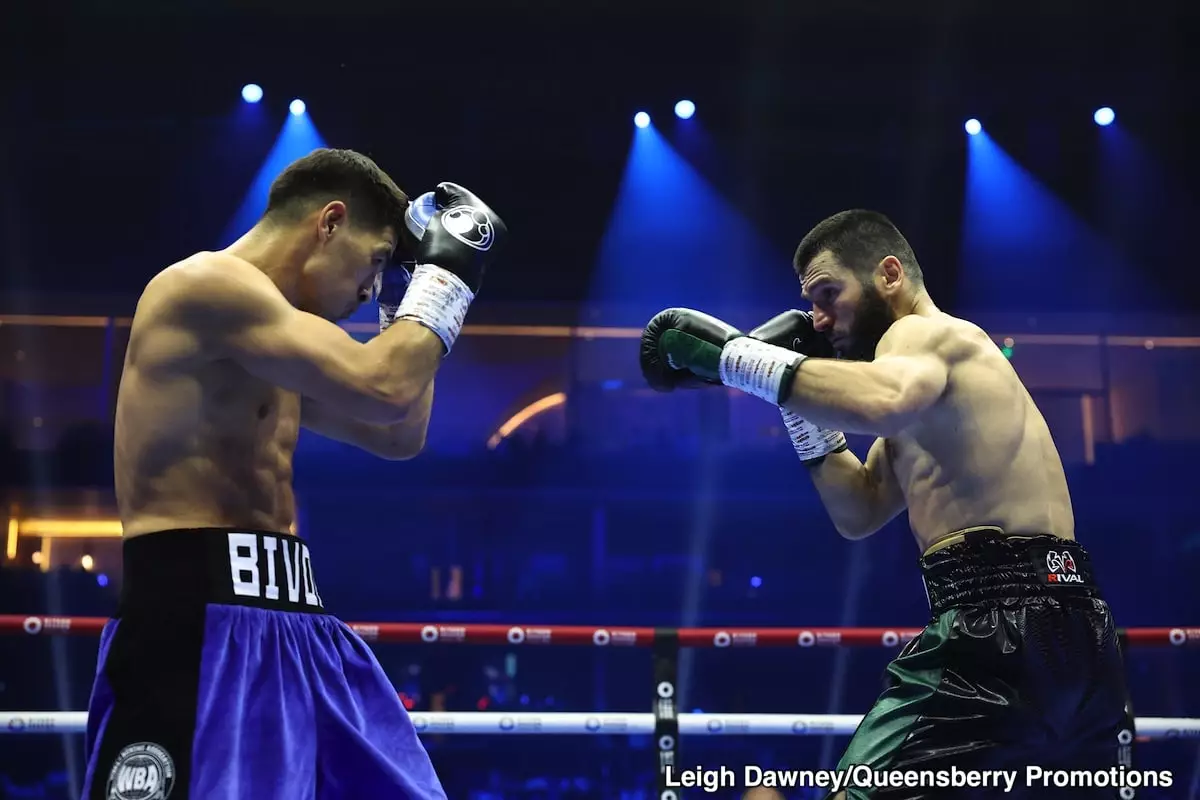The boxing world witnessed a significant clash on a notable night in Riyadh, where the IBF/WBC/WBO light heavyweight champion Artur Beterbiev faced off against WBA champion Dmitry Bivol. The stakes were high, with both fighters vying for the title of undisputed champion. With Beterbiev’s record of 21 wins, 20 by knockout, and Bivol’s 23 wins, 12 by knockout, fans anticipated a battle of skill, power, and strategy. Ultimately, Beterbiev emerged victorious by a majority decision, claiming the undisputed title, but the fight ignited debates on scoring and the performance of both fighters.
From the onset of the match, it was evident that Bivol entered with a solid strategy, employing his superior technical skills. His defensive tactics initially showcased his boxing prowess. However, as the rounds progressed, the tide seemed to turn. Starting from the fifth round, Beterbiev began to increase his aggression, prioritizing pressure and power over finesse. According to the judges’ scores—114-114, 115-113, and 116-112—the contest was tightly contested, suggesting that while one fighter displayed technical merit, the other capitalized on physicality and mental fortitude.
Prominent figures in boxing commentary, such as Eddie Hearn and Gareth A. Davies, weighed in on the fight’s scoring. Hearn, for instance, expressed dissatisfaction with the scores, believing Bivol had done enough to secure the victory. Conversely, Davies and Spencer Oliver noted that Beterbiev’s relentless pressure, especially in the latter stages of the fight, may have outweighed Bivol’s earlier performance.
Beterbiev’s ambition was palpable as he stalked Bivol throughout the fight. The impression was that Beterbiev was not merely seeking victory; he aimed to dominate his opponent. His tactical choice to push harder during the last minutes of each round was both a risk and a calculated strategy. Despite starting slowly, Beterbiev’s insistence on increasing his activity near the end of each round may have swung the judges in his favor, though it raised questions regarding his overall pacing and approach.
As Oliver pointed out, Beterbiev’s strategy to save his most intensive efforts for the final 45 seconds might have secured him crucial rounds, yet this tactic also invites scrutiny. Had he maintained a more aggressive stance throughout the entire duration of each round, it is plausible that Bivol may not have stood a chance. This highlights a critical aspect of boxing: the art of engagement versus conservation. In a sport where every second counts, Beterbiev’s timing and energy management became a significant talking point.
The aftermath of this high-octane matchup has left many fans and analysts clamoring for a rematch. The discussions surrounding Bivol’s performance and the debate over the validity of the scores has revived interest in a potential second encounter between these two fighters. Prominent figures, including His Excellency Turki Alalshikh, expressed their desire for a rematch, citing Bivol’s competitive stance and suggesting he may have edged Beterbiev by a couple of rounds.
Further, the discussion of heavyweight boxing often involves the specter of Canelo Alvarez, a fighter who could disrupt the future endeavors of both champions. The possibility of Alvarez moving up to challenge Beterbiev adds another layer of intrigue to this already complex scenario. This uncertainty, coupled with the call for a rematch, suggests that the light heavyweight division remains a focal point of excitement in boxing.
What transpired in the Kingdom Arena will undoubtedly be remembered as a pivotal moment in boxing history. Beterbiev’s victory, albeit through a majority decision, has sparked conversations about strategy, scoring, and the nature of future matchups. The light heavyweight division stands poised for continued excitement, and the possibility of a Beterbiev-Bivol rematch offers a tantalizing prospect. As fans and analysts reflect on this intense showdown, one thing is clear: the evolution of these fighters is far from over, and their legacies are still being forged in the ring.

